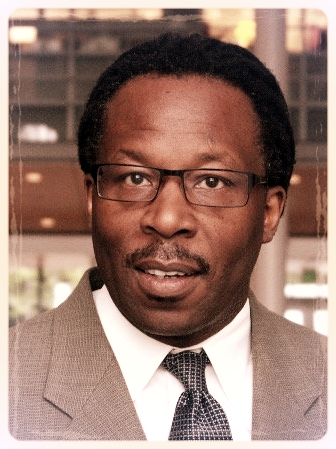She was certainly articulate. So, what's the problem?
Let's start by turning to an excellent article from KUOW producer Jeannie Yandel, "'You're So Articulate': Why Microaggressions Wear People Down."
According to Yandel's article, a microaggression is "an everyday slight, putdown or insult toward marginalized groups. Often, these come from well-intentioned individuals who are unaware they are saying anything offensive. Such seemingly small comments are the morphing of overt racism in America into a much more subtle form of bias."
Microaggressions are a nuanced form of prejudice, which can make them easy to miss -- and to dismiss. But they take a huge toll over time, in no small part because they are so difficult to combat that they are often just absorbed silently.
More from Yandel:
If the recipient, like Sue, takes offense, he could be perceived as misreading the intent of the comment or being too sensitive. “It is very difficult for them to understand the hidden meaning of their microaggression," he said.
Microaggressions aren’t just in offhand comments – they can be nonverbal too.
An example: a white woman clutching her purse a little tighter near a black male. Sue said assumptions of dangerousness and criminality are characteristic of the microaggressions black people receive.
Each small gesture might seem trivial, but for the person who receives them, they can accumulate over years – especially if the recipient has been subjected to different microaggressions several times a day.
“All our research on microaggressions reveal that microaggressions take a tremendous psychological and physical toll on the marginalized group member,” which can take the form of loss of productivity at school and work or a decrease in subjective well-being, Sue said.
Combating microaggressions can be tricky. Sue said recipients of microaggressions find themselves in a “damned if you do, damned if you don’t” situation.
“We found that the majority of people of color did not do anything, were told not to do anything, but by that decision what happened was that it took a psychological toll on them," Sue said. "They sat there and seethed away with anger and frustration. But they were also very hard on themselves by saying, ‘I’m a coward. Why didn’t I at least do something about it?"
Of course, as the article goes on to discuss, it's usually easier said than done to "do something" about a microaggression. Imagine this young woman interrupting a well-intentioned-but-ignorant school board member to try to explain why the intended compliment was actually an insult and a projection of implicit bias.
And the thing is, she shouldn't have to. She shouldn't have to hear it in the first place, and she definitely shouldn't be the one stuck defending herself and educating her oppressors.
So, Director Harris, take it from me instead: choosing to describe this student as "extremely articulate" -- and nothing else -- is problematic. It's a microaggression. A slight. And it's yet another reflection of our school board's sad lack of racial awareness.
(See also: Let's unpack SPS Board Director Rick Burke's understanding of integration, Please help our kids get the school board leadership they deserve, Seattle School Board VP Harris should resign after using term 'ghetto school', and A grassroots coalition just stopped the Seattle School Board from adding $11 million to the deficit.)
All of our students deserve better.
I am officially raising my hand and requesting that the Seattle School Board undergo some intensive DEI (short for diversity, equity and inclusion) work. This board does not constitute safe, productive leadership for our kids.
We should also, as a so-called sanctuary city, consider taking protective measures for the kids who already live here as well as those who don't. Let's make implicit bias testing mandatory for anyone working in our public school system. Now.








